 W
WKaifi Azmi was an Indian Urdu poet. He is remembered as the one who brought Urdu literature to Indian motion pictures. Together with Pirzada Qasim, Jaun Elia and others he participated in many memorable Mushaira gatherings of the twentieth century.
 W
WTarasankar Bandyopadhyay was an Indian novelist who wrote in the Bengali language. He wrote 65 novels, 53-story-books, 12 plays, 4 essay-books, 4 autobiographies, 2 travel stories and composed several songs. He was awarded Rabindra Puraskar, Sahitya Akademi Award, Jnanpith Award, Padma Shri and Padma Bhushan.
 W
WAshapurna Devi also Ashapoorna Devi or Ashapurna Debi, was a prominent Indian novelist and poet in Bengali. She has been widely honoured with a number of prizes and awards. In 1976, she was awarded Jnanpith Award and the Padma Shri by the Government of India; D.Litt. by the Universities of Jabalpur, Rabindra Bharati, Burdwan and Jadavpur. Vishwa Bharati University honoured her with Deshikottama in 1989. For her contribution as a novelist and short story writer, the Sahitya Akademi conferred its highest honour, the Sahitya Akademi Fellowship, in 1994.
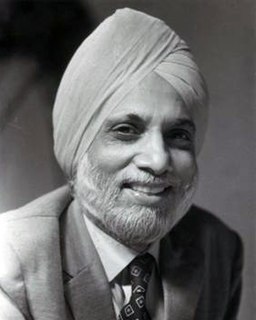 W
WKartar Singh Duggal was an Indian writer who wrote in Punjabi, Urdu, Hindi, and English. His works include short stories, novels, dramas and plays. His works have been translated into Indian and foreign languages. He has served as Director, All India Radio.
 W
WRaghupati Sahay, better known under his pen name Firaq Gorakhpuri, was a writer, critic, and, according to one commentator, one of the most noted contemporary Urdu poets from India. He established himself among peers including Muhammad Iqbal, Yagana Changezi, Jigar Moradabadi and Josh Malihabadi.
 W
WQurratulain Hyder was an Indian Urdu novelist and short story writer, an academic, and a journalist. One of the most outstanding and influential literary names in Urdu literature, she is best known for her magnum opus, Aag Ka Darya, a novel first published in Urdu in 1959, from Lahore, Pakistan, that stretches from the 4th century BC to post partition of India.
 W
WJi Xianlin was a Chinese Indologist, linguist, paleographer, historian and writer who has been honored by the governments of both India and China. Ji was proficient in many languages including Chinese, Sanskrit, Arabic, English, German, French, Russian, Pali and Tocharian, and translated many works. He published a memoir, The Cowshed: Memories of the Chinese Cultural Revolution, about his persecution during the Cultural Revolution.
 W
WDattatreya Balkrishna Kalelkar, popularly known as Kaka Kalelkar, was an Indian independence activist, social reformer, journalist and an eminent follower of the philosophy and methods of Mahatma Gandhi.
 W
WJaswant Singh Kanwal was an Indian novelist, short story writer and essayist of the Punjabi language. He was born in the village of Dhudike, Moga District, Punjab, India. As a young teenager he left school and went to Malaya. It was there that he first got interested in literature. He returned to Dhudike after a few years and has lived there ever since. He was awarded the Punjabi Sahit Shiromani Award in the year 2007.
 W
WGopinath Kaviraj was an Indian Sanskrit scholar, Indologist and philosopher. First appointed in 1914 a librarian, he was the Principal of Government Sanskrit College, Varanasi from 1923 to 1937. He was also the editor of the Sarasvati Bhavana Granthamala during that period.
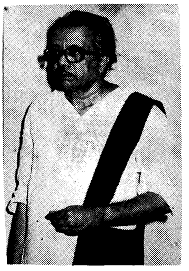 W
WRavindra Kelekar was a noted Indian author who wrote primarily in the Konkani language, though he also wrote in Marathi and Hindi. A Gandhian activist, freedom fighter and a pioneer in the modern Konkani movement, he is a well known Konkani scholar, linguist, and creative thinker. Kelkar was a participant in the Indian freedom movement, Goa's liberation movement, and later the campaign against the merger of the newly formed Goa with Maharashtra. He played a key role in the founding of the Konkani Bhasha Mandal, which lead the literary campaign for the recognition of Konkani as a full-fledged language, and its reinstatement as the state language of Goa. He authored nearly 100 books in the Konkani language, including Amchi Bhas Konkaneech, Shalent Konkani Kityak, Bahu-bhashik Bharatant Bhashenche Samajshastra and Himalayant, and also edited Jaag magazine for more than two decades.
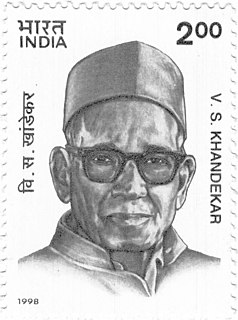 W
WVishnu Sakharam Khandekar was a Marathi writer from Maharashtra, India. He was the first Marathi author to win the prestigious Jnanpith Award.
 W
WJainendra Kumar, was a Hindi writer of 20th century. He wrote novels including Sunita and Tyagapatra.
 W
WDurga Charan Mohanty (Odia:ଦୁର୍ଗାଚରଣ ମହାନ୍ତି, was an Odia Indian spiritual writer born in 1912 at Biratunga, a village under block Gop, near Konark, Odisha. The Odia Sahitya Akademi has been awarded to him in 1956–58 due to his active involvement in development of Odia language and literature Being a disciple of Swami Nigamananda, he wrote many books and translated Nigamananda's own-written Bengali books to Odia language. He was ପରିଚାଳକ of ନୀଳାଚଳ ସାରସ୍ୱତ ସଂଘ.
 W
WVaidyanath Mishra, better known by his pen name Nagarjun, was a Hindi and Maithili poet who has also penned a number of novels, short stories, literary biographies and travelogues, and was known as Janakavi- the People's Poet. He is regarded as the most prominent protagonist of modernity in Maithili.
 W
WSumitranandan Pant was an Indian poet. He was one of the most celebrated 20th century poets of the Hindi language and was known for romanticism in his poems which were inspired by nature, people and beauty within.6 hours after childbirth, and it appears he did not seek affection from his grandmother, father, or older brother, which later influenced his writing. His father served as the manager of a local tea garden, and was also a landholder, so Pant was never in want financially growing up. He grew up in the same village and always cherished a love for the beauty and flavor of rural India, which is evident in all his major works.
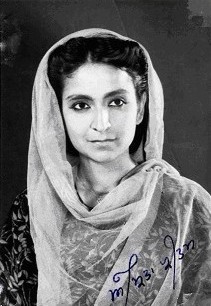 W
WAmrita Pritam; listen (help·info); 31 August 1919 – 31 October 2005) was an Indian novelist, essayist and poet, who wrote in Punjabi and Hindi. She is considered the first prominent female Punjabi poet, novelist, essayist and the leading 20th-century poet of the Punjabi language, who is equally loved on both sides of the India–Pakistan border. With a career spanning over six decades, she produced over 100 books of poetry, fiction, biographies, essays, a collection of Punjabi folk songs and an autobiography that were all translated into several Indian and foreign languages.
 W
WAnnada Shankar Ray was an Indian poet and essayist in Bengali. He also wrote some Odia poetry.
 W
WBhisham Sahni was an Indian writer, playwright in Hindi and an actor, most famous for his novel and television screenplay Tamas, a powerful and passionate account of the Partition of India. He was awarded the Padma Bhushan for literature in 1998, and Sahitya Akademi Fellowship in 2002. He was the younger brother of the noted Hindi film actor, Balraj Sahni.
 W
WHarbhajan Singh was an Indian poet, critic, cultural commentator, and translator in the Punjabi-language. Along with Amrita Pritam, Harbhajan is credited with revolutionising the Punjabi poetry writing style. He published 17 collections of poems, including Registan Vich Lakarhara, 19 works of literary history and translated 14 pieces of literature of others including those of Aristotle, Sophocles, Rabindranath Tagore and selections from the Rig Veda.
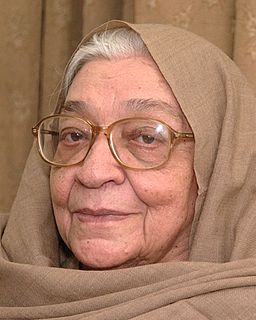 W
WKrishna Sobti was an Indian Hindi-language fiction writer and essayist. She won the Sahitya Akademi Award in 1980 for her novel Zindaginama and in 1996, was awarded the Sahitya Akademi Fellowship, the highest award of the Akademi. In 2017, she received the Jnanpith Award for her contribution to Indian literature.
 W
WKodaganallur Ramaswami Srinivasa Iyengar (1908–1999), popularly known as K. R. Srinivasa Iyengar, was an Indian writer in English, former vice-chancellor of Andhra University. He was given the prestigious Sahitya Akademi Fellowship in 1985.
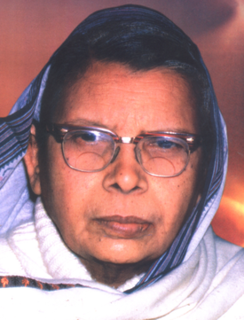 W
WMahadevi Verma was a Hindi poet, freedom fighter and educationist from India. She was a major poet of the "Chhayavaad", a literary movement of romanticism in modern Hindi poetry ranging from 1914–1938 and a prominent poet in Hindi Kavi sammelans.
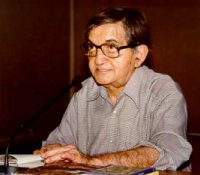 W
WNirmal Verma was a Hindi writer, novelist, activist and translator. He is credited as being one of the pioneers of the Nai Kahani literary movement of Hindi literature, wherein his first collection of stories, Parinde (Birds) is considered its first signature.